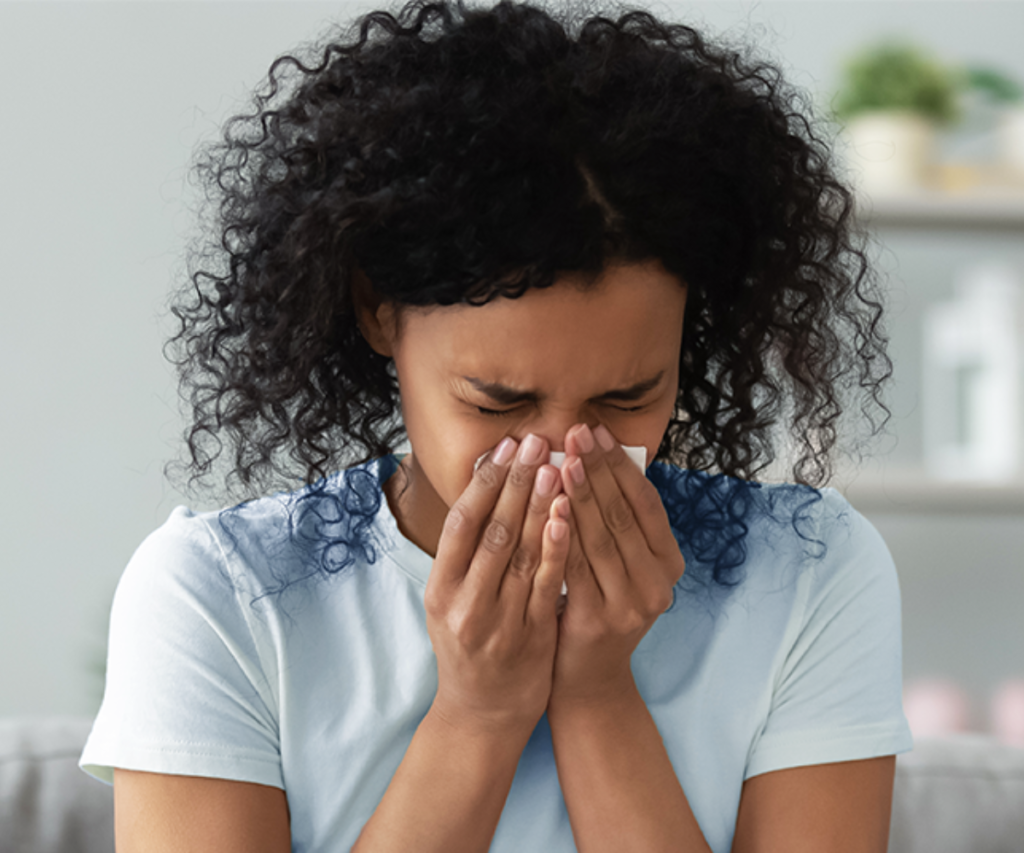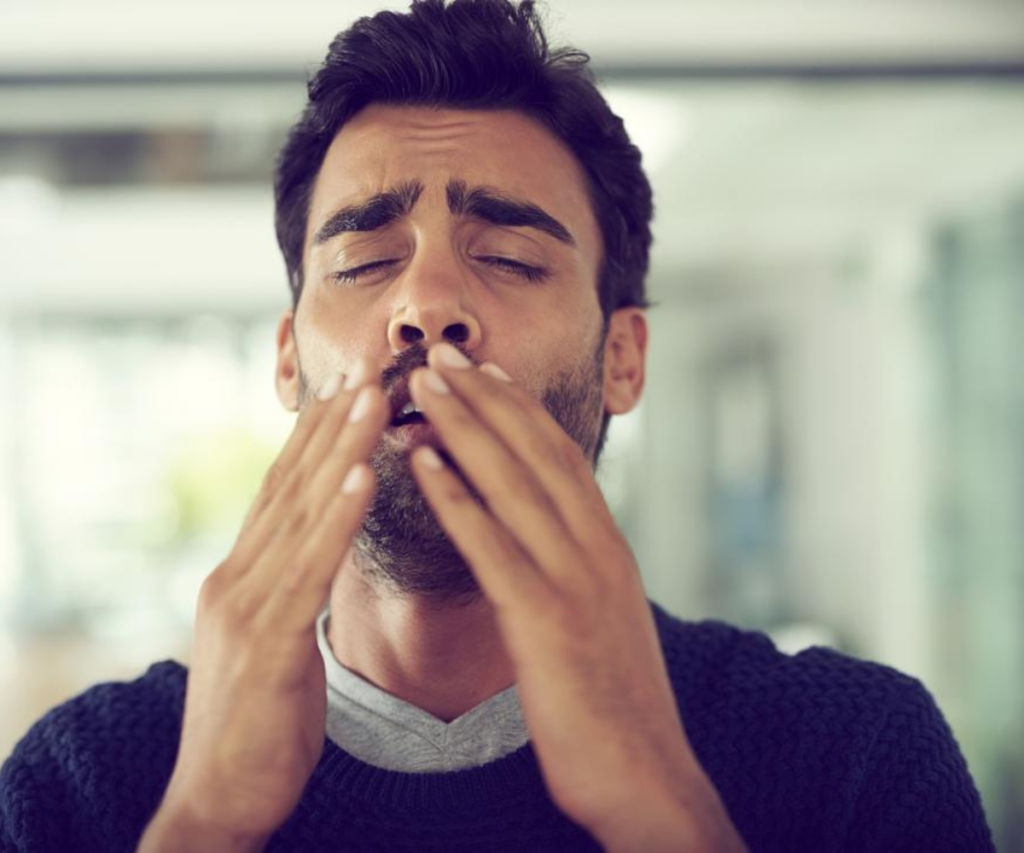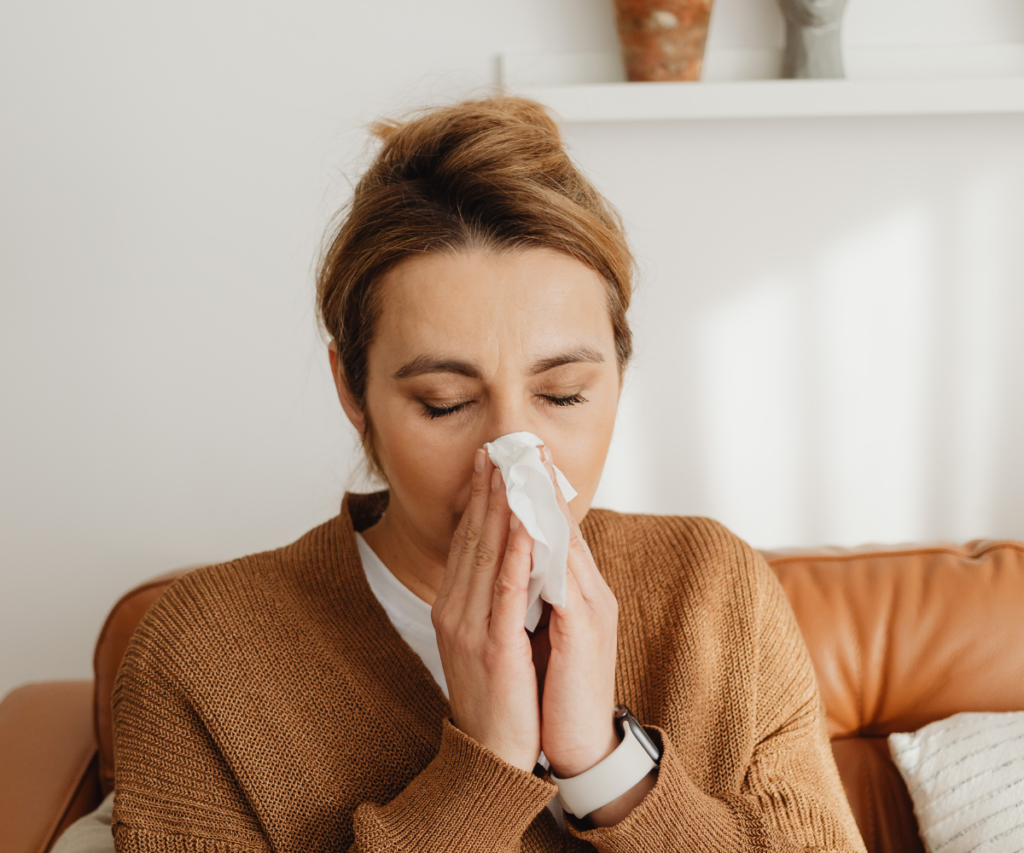What Is Sneezing?

The causes of sneezing can range from allergies and infections to environmental irritants and other triggers. Sneezing, also known as sternutation, is a natural reflex that helps the body remove irritants, allergens, and pathogens from the nasal passages. It occurs when sensitive nerve endings in the nose detect foreign particles, dust, or microbes, prompting a rapid expulsion of air through the nose and mouth. This reflex is vital for maintaining respiratory health, as it prevents harmful substances from entering the lungs. On average, a healthy person sneezes about four times a day, though this can vary depending on exposure to allergens, irritants, and individual sensitivity.
The Biological Function of Sneezing
Sneezing serves as a protective mechanism. The nasal passages are lined with fine hairs, called cilia, and a mucous membrane that trap particles such as pollen, dust, and microbes. When these particles accumulate or irritate the nasal lining, the brain triggers a sneeze to forcefully remove them.
In addition to cleansing the nasal passages, sneezing can help reduce the risk of respiratory infections. By expelling viruses, bacteria, and allergens before they penetrate deeper into the respiratory tract, the body reduces the chances of illness.
Common Causes of Sneezing
Sneezing can be triggered by a variety of factors ranging from environmental irritants to underlying medical conditions. Understanding these causes helps manage sneezing effectively.
Allergies and Hay Fever
Allergic rhinitis, commonly known as hay fever, is one of the most frequent causes of sneezing. Allergies occur when the immune system overreacts to harmless substances such as pollen, mold, pet dander, or dust mites.
Symptoms of allergic sneezing may include:
- Frequent sneezing, often in bouts
- Runny or congested nose
- Itchy eyes, throat, or skin
- Fatigue or poor sleep due to nasal obstruction
Environmental triggers like cigarette smoke, strong odors, or air pollutants can exacerbate these symptoms, especially during pollen season or in poorly ventilated spaces.
Respiratory Infections
Sneezing is a hallmark symptom of several respiratory illnesses. Common viral infections such as the cold or influenza trigger sneezing as the body attempts to expel infectious agents.
Cold and flu-related sneezing often accompanies:
- Runny or congested nose
- Sore throat
- Mild fever
- Fatigue and body aches
Viral infections irritate the nasal lining, prompting frequent sneezing, which serves as a defense mechanism to limit viral spread within the respiratory tract.
Photic Sneeze Syndrome (ACHOO Syndrome)
Some people sneeze when exposed to bright light, a condition known as Photic Sneeze Syndrome (PSS) or ACHOO syndrome. This reflex is thought to involve heightened sensitivity of the trigeminal nerve, though the precise mechanism remains unclear.
Characteristics include:
- Sneezing triggered by sudden exposure to sunlight or bright indoor lights
- Genetic predisposition, often inherited
- Possible association with migraines or stress
While harmless, this syndrome can be inconvenient in certain situations, such as driving or outdoor activities.
Environmental Irritants

Airborne irritants can trigger sneezing even in individuals without allergies or infections. Common irritants include:
- Dust and fine particulate matter
- Cigarette smoke and chemical fumes
- Strong perfumes or cleaning agents
- Polluted outdoor air, such as car exhaust
Reducing exposure to these irritants can significantly lower the frequency of sneezing.
Other Causes
Other less common causes of sneezing include:
- Non-allergic rhinitis, which causes chronic nasal inflammation without a specific allergen
- Nasal polyps or structural abnormalities in the nasal passages
- Certain medications that trigger nasal irritation
- Psychological stress, which may exacerbate sneezing in sensitive individuals
How to Stop Sneezing Naturally
Minimizing exposure to triggers and maintaining nasal hygiene are the first steps in controlling sneezing. Effective strategies include:
- Avoiding known allergens like pollen, mold, and pet dander
- Regular cleaning of home surfaces and bedding
- Using air filters and dehumidifiers to reduce airborne irritants
- Wearing sunglasses outdoors to limit exposure to pollen and bright light
- Saline nasal rinses to flush irritants from nasal passages
Medical Treatments for Sneezing
When sneezing persists despite home measures, medications can help:
Allergy Treatments
- Antihistamines: Reduce histamine reactions causing sneezing and itching
- Corticosteroid nasal sprays: Most effective for chronic hay fever
- Immunotherapy: Allergy shots or sublingual tablets help the body build tolerance to allergens
Treatments for Respiratory Infections
- Over-the-counter decongestants, acetaminophen, and NSAIDs
- Hydration and rest to support immune function
- Avoiding irritants like smoke and alcohol, which can worsen symptoms
Managing Photic Sneeze Syndrome
- Limiting exposure to bright lights
- Wearing protective eyewear
- Avoiding sudden sun exposure when possible
Lifestyle Changes to Reduce Sneezing

- Regular house cleaning to remove dust and allergens
- Maintaining indoor air quality with filters and ventilation
- Staying hydrated to keep nasal mucosa moist
- Avoiding smoking and secondhand smoke
- Planning outdoor activities around pollen levels
When to See a Doctor
Consult a healthcare provider if sneezing is:
- Severe or persistent despite home remedies
- Accompanied by fever, facial pain, or unusual discharge
- Interfering with sleep, work, or daily activities
- Part of a complex allergy or sinus problem requiring prescription treatment.https://www.youtube.com/watch?v=h3T4IbUIGhI
Common Myths About Sneezing
- Heart stops while sneezing? No, only minor, temporary changes in heart rhythm occur.
- Sneezing with eyes open is dangerous? No, it is harmless, though involuntary eye closure is natural.
- Sneezing in sleep? Possible in light sleep stages, not during REM.
Frequently Asked Questions
Q1: Why am I sneezing so much all of a sudden?
Sudden sneezing can result from new irritants, high pollen counts, or early respiratory infections.
Q2: Can sneezing be a symptom of COVID-19?
Sneezing is rarely associated with COVID-19; typical symptoms include fever, cough, fatigue, and loss of taste or smell.
Q3: Is it bad to hold a sneeze?
Holding in a sneeze can cause increased pressure in the chest, potentially injuring the ears, throat, or blood vessels.
Q4: Can sneezing cause heart problems?
Sneezing temporarily changes chest pressure but does not stop the heart or cause long-term damage.
Home Remedies and Natural Treatments
- Steam inhalation: Clears nasal passages
- Warm compresses: Reduce sinus irritation
- Herbal teas and honey: Soothe nasal membranes
- Essential oils: Peppermint or eucalyptus for relief
- Saline nasal sprays/rinses: Flush irritants from nose
Prevention Tips
- Monitor pollen counts and avoid peak times outdoors
- Maintain clean living areas to reduce dust and allergens
- Use air conditioning with filters in vehicles and homes
- Practice good hand hygiene
- Wear masks during allergy season or in polluted areas
Conclusion

Sneezing is a natural and protective reflex essential for respiratory health. While often harmless, frequent or severe sneezing can indicate allergies, infections, or environmental irritants. Effective management includes avoiding triggers, using home remedies, and seeking medical care when necessary. Maintaining a clean, allergen-free environment, proper hydration, and preventive strategies can significantly reduce sneezing episodes and improve quality of life.




